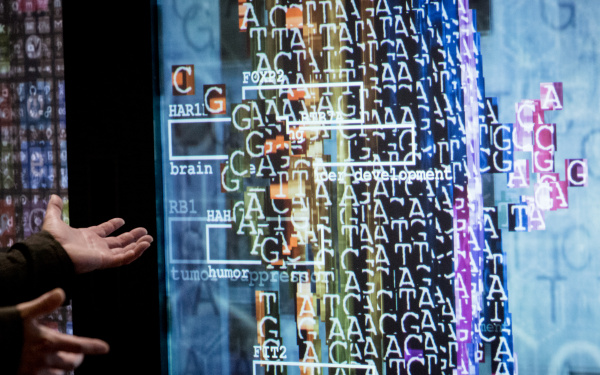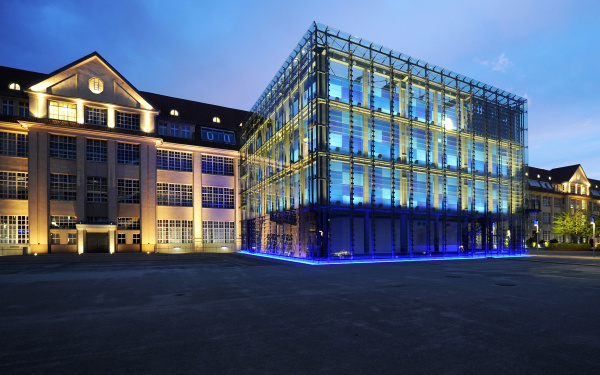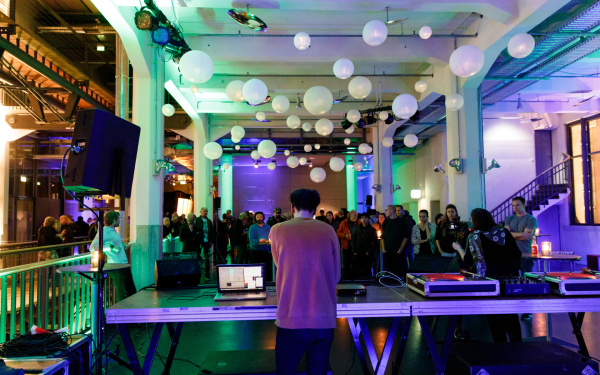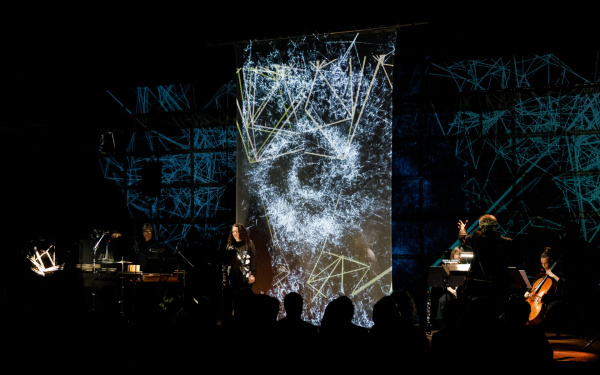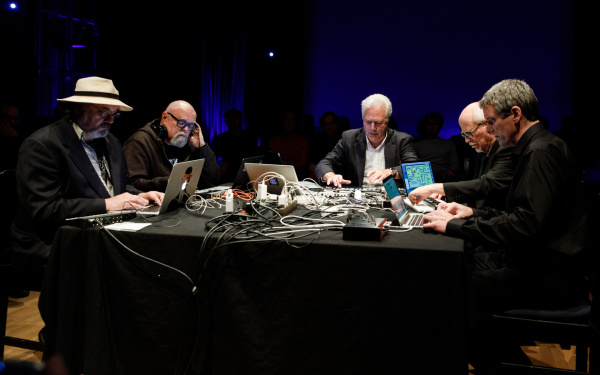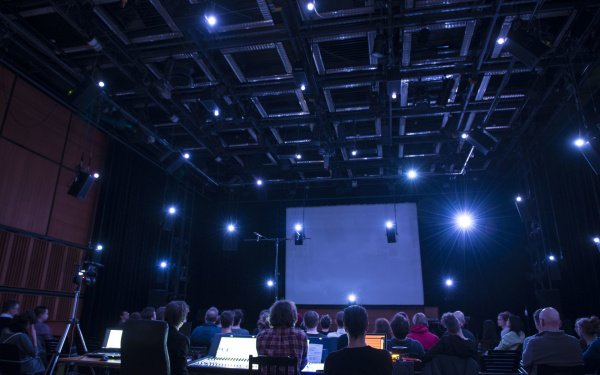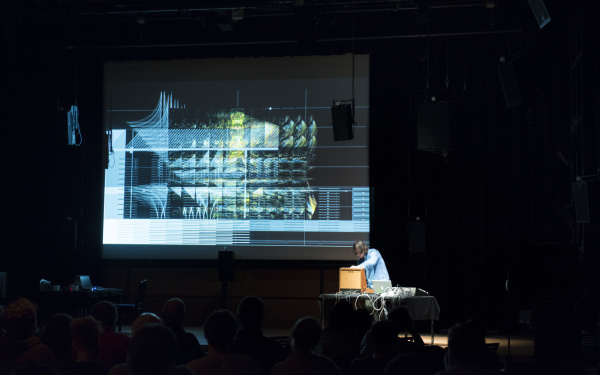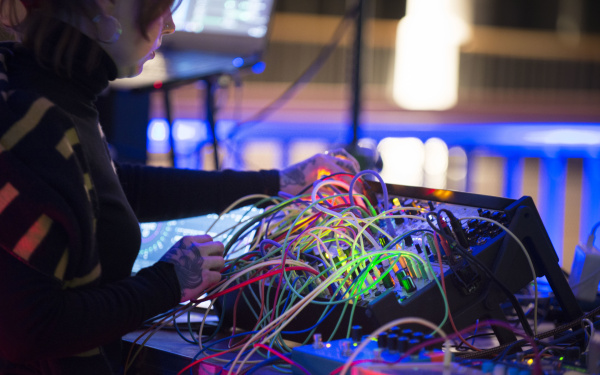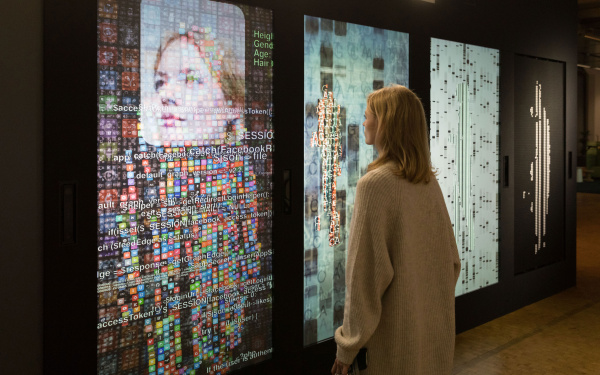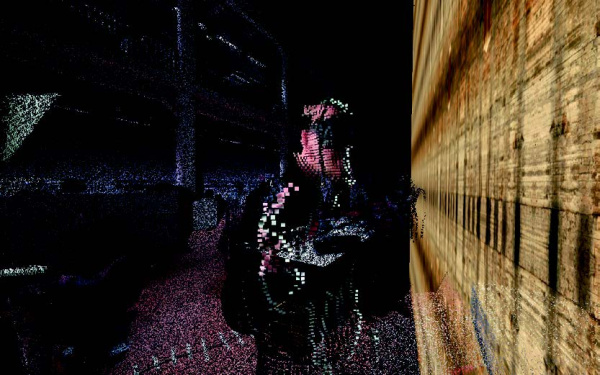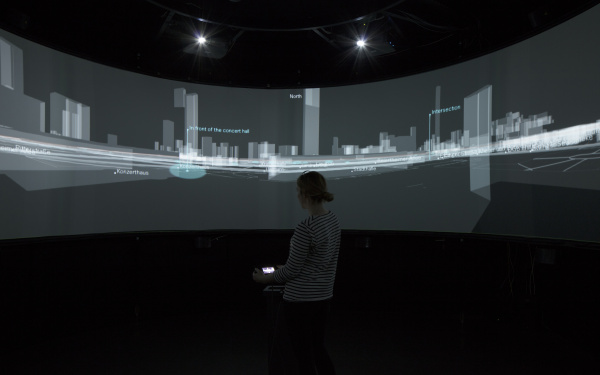Hertzlab
Artistic Research & Development at ZKM
The ZKM | Hertzlab operates as a transdisciplinary research and development platform at the interface of media arts, science and society.
What will our world look like 100 years from now? How do we create a future that is not only survivable, but worth living - for everyone? We use artistic means to explore big social questions: How do we design human relationships when the chatbot does the flirting for us? Do robots have a right to work-life balance? Do we need a Turing Test for humans? How do we get away from linear narratives, and what do future narratives look like if they are not European or US-based? All of our projects revolve around six main themes that provide a framework for the thematic debate.
The ZKM | Hertzlab focuses on artistic-technological research in the department, the curation and supervision of a global residency program, as well as concerts, showcases, and performances of artistic research that has taken place elsewhere. We tinker, program, build, and learn together in studios, ateliers, hackspaces, and other facilities.
Since 2017, the Hertzlab has united the former Institute for Visual Media and the Institute for Music and Acoustics to form a joint future department at ZKM.
The title of the ZKM | Hertzlab is dedicated to the scientist Heinrich Hertz, who proved the existence of electromagnetic waves in his famous spark experiments at the University of Karlsruhe in 1886. He is considered the founder of radio technology, the wireless transmission of information.
Focal points of Hertzlab
ZKM | Hertzlab conducts artistic research and development at the interface of art, politics, and technology. We have identified six main themes around which all our projects, residencies, and research interests revolve. We want to explore these themes artistically and raise questions about them in various projects.
-
LIFECYCLES
Shifting perspective to a circular society
Away from the linear narrative of life, towards the creation of cycles: In LIFECYCLES, everything revolves around circularity. Whether in the economy, in product cycles, in nature, or in our use of resources, as a society we will not be able to avoid seeing ourselves as part of a cycle, connected to each other and to everything that is coming and everything that has been.
-
CONNECT
Forming interpersonal relationships, even with a machine in between
How do we shape interpersonal relationships in an age where we are no longer in direct contact with each other, but rather through technology? CONNECT explores the possibilities of building trust in networks and the possibilities of connecting people through technology.
-
A COMMON(S) WORLD
Creating public access to knowledge and building immersive shared worlds in a future focused on the common good
The ZKM | Hertzlab aims to contribute to the common good with its artistic research focus - public knowledge, information sharing, the use and maintenance of open source software, as well as artistic research into technologies (e.g. virtual reality) that bring us closer together.
-
KI-LAB
Working together to address the challenges and opportunities of future technologies
Will we need a Turing Test for humans in the future instead of one for machines? The opportunities and challenges we face as a civil society with regard to artificial intelligence, generative content creation and machine learning are highlighted in the AI-LAB focus area. The focus is on knowledge transfer and the artistic treatment of AI-relevant social implications.
-
POST-HUMAN WORLD
Imagining a world beyond the Anthropocene
What would the world look like if we took humans out of the equation? The POST-HUMAN WORLD theme brings together all Hertzlab projects that investigate how non-human actors behave in the world. This includes the recreational behavior of robots as well as the natural compositional activity of oyster mushrooms. In this focus area, we invite you to leave the perspective of the Anthropocene and think further.
-
FELLOW FUTURES
Making marginalized futures visible
We are living in the science fiction literature of the 1980s; what was a terrible dystopia for the authors back then is a normal Wednesday for us. The canon of science fiction and futuristic literature is still dominated by Western perspectives. We want to make underrepresented perspectives visible - what does the future look like for a character whose island will not exist in 50 years? What kind of science fiction comes from a geographical region that will be uninhabitable by 2050 due to extreme climatic events?
-
Hertzlab
Contact: Tina Lorenz
E-mail: hertzlab@zkm.de
